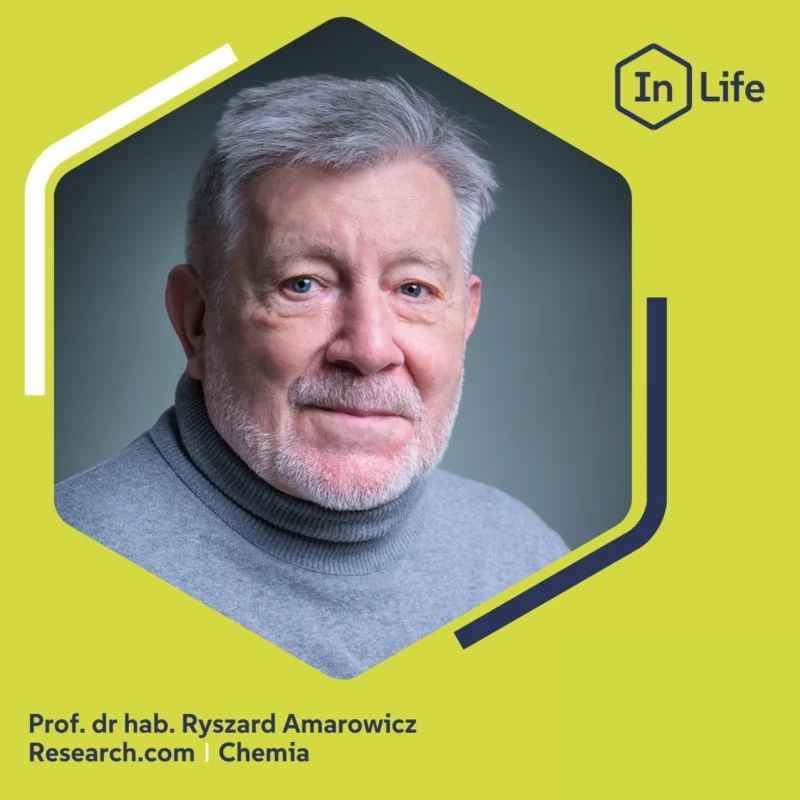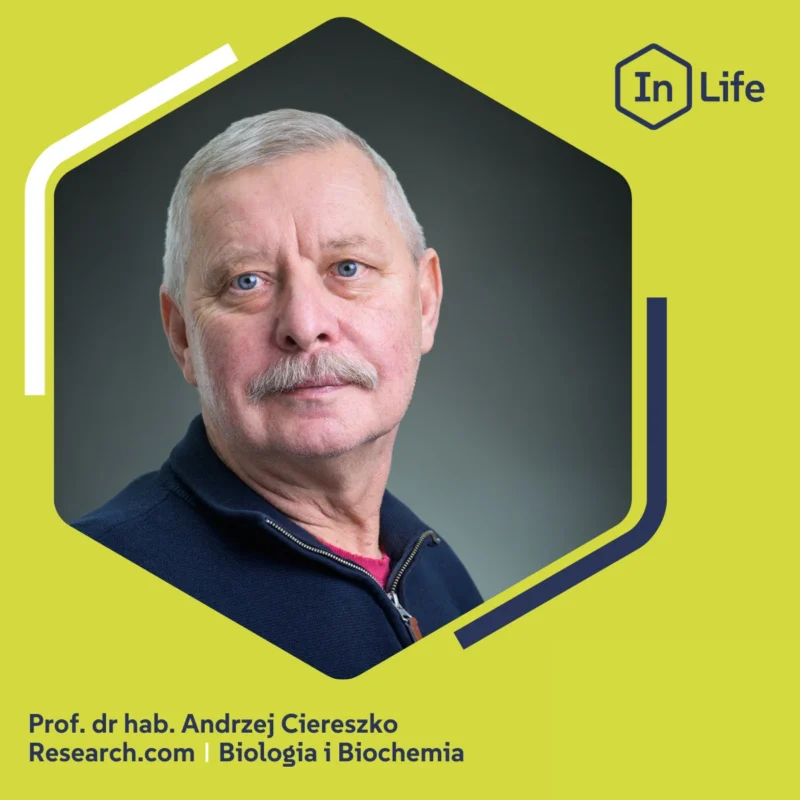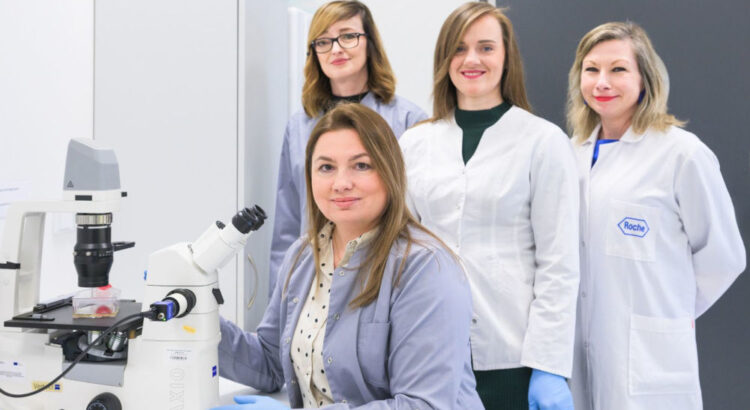EN
Dr. Radosław Kowalski with prestigious CINEA support

The leader of the Aquatic Organism Reproductive Biotechnology Team received technical assistance for his project thanks to a call for proposals announced by the European Climate, Environment and Infrastructure Executive Agency (CINEA). As part of this prestigious programme, in July Dr. Radosław Kowalski hosted at the Institute’s headquarters experts whose support will contribute to strengthening efforts to achieve the EU Mission: Restore our Ocean and Waters.
Technical assistance (Cycle 2 – Technical Assistance to support communities of actors to achieve the EU Mission: Restore our Ocean and Waters objectives) aims to support selected applicants in developing, facilitating, and strengthening actions that contribute to one or more of the objectives of the EU Mission: Restore our Ocean and Waters. The program includes technical assistance and feasibility studies.
“The technical assistance is an exclusive, impact-driven, coaching programme for selected signatories of the EU Mission Ocean and Waters Charter, which consists of expert support to analyse and improve each project. The technical assistance shall be tailored to each project’s maturity and objectives and support the achievement of the selected targets of the Mission.” – as we read in the Call for Expression of Interest.
As part of the assistance provided, in July this year, Dr. Radosław Kowalski hosted two experts: Tim Huntington, Poseidon Director, a sustainable aquaculture expert, and Małgorzata Smolak, Technopolis, a lawyer specializing in environmental and energy law. The assistance provided so far in the development of a project aimed at protecting the aquatic ecosystem will beconcluded with the preparation of a feasibility study.
Following the Call: “The feasibility studies shall provide an assessment of the overall viability of projects, defining risks, opportunities, and probability of success and analysing whether the planned projects are legally, technically, financially, economically, operationally, environmentally, and commercially justifiable and feasible. The studies shall also provide recommendations on how to improve the feasibility of selected actions.”
IN RESPONSE TO THE DEGRADATION OF AQUATIC ECOSYSTEMS
The evaluated project focuses on the protection and monitoring of salmonid biodiversity in Central and Eastern Europe – from the Baltic Sea basin to the Adriatic Sea – with particular emphasis on the endangered species of Danube salmon (Hucho hucho). This species, like other salmonids (e.g., Atlantic salmon, sea trout, and brown trout), is highly sensitive to the effects of climate change and habitat degradation, leading to its withdrawal from natural river environments.
The project involves international cooperation between research centers, water management institutions, non-governmental organizations, and representatives of local communities from various countries in the region.
The planned actions include:
- developing and implementing new methods for monitoring the presence and condition of salmonid populations, including the use of eDNA analysis;
- developing cross-border mechanisms for the protection and renaturation of river habitats;
- initiating active conservation programs, such as the restoration of endangered populations, the creation of “living gene banks,” and the improvement of watershed management practices;
- creating a platform for the exchange of knowledge and good practices, which will enable more effective coordination of activities on a transnational scale.
The aim of the project is not only to counteract the decline in biodiversity, but also to contribute to the restoration of functional, climate-resilient river ecosystems, in line with the EU Biodiversity Strategy and the European Green Deal.
Results of recruitment to the Interdisciplinary Doctoral School of Agricultural Sciences 2025
Between July 8–16, 2027, interviews were conducted with candidates applying for admission to the Interdisciplinary Doctoral School of Agricultural Sciences.
The following candidates have been admitted to the 1st year (2025/2026) of the Interdisciplinary Doctoral School of Agricultural Sciences:
Institute of Animal Reproduction and Food Research of the Polish Academy of Sciences in Olsztyn:
- Agnieszka Bachmura;
- Piotr Lekowski;
- Sandra Brygida Mirończuk.
Institute of Agrophysics of the Polish Academy of Sciences in Lublin:
- Agnieszka Lenga.
Competition for the position Specialist / Senior Specialist in the Research Team
Competition for the position:
Specialist / Senior Specialist in the Research Team entitled „Personalized diagnostics of vascular endothelium in oncological therapy; towards modern vasculo-oncology” (acronym: ADEVASCO) financed by the Polish Science Fund.
Place of work:
Institute of Animal Reproduction and Food Research of the Polish Academy of Sciences in Olsztyn,
street Trylińskiego 18,
Bioelectroanalytics Team.
Scope of tasks:
conducting research related to the development of an electrochemical aptasensor for detecting biomarkers of vascular endothelial dysfunction induced by anticancer treatment.
Role in the Team:
The person employed in this position will assume the role of a Technical support/PhD Student as described in the project proposal. The role of the Employee will involve responsibility for specific stages of the research work, coordination of certain experiments, and supporting the methodology.
Requirements for candidate qualifications and experience:
- master’s degree in chemical sciences,
- knowledge of biomolecular chemistry,
- ability to use electrochemical methods,
- good knowledge of English, spoken and written,
- ability to prepare reports and present the results of scientific work,
- motivation for scientific work,
- communication skills and very good work organization,
- ability to work independently and in a team.
Type of contract, period, scope of commitment, financial conditions:
- Employment contract, full time,
- Employment for 52 months,
- Salary PLN 9,000 – PLN 10,500 gross (depending on experience),
- Position opening date: August 2025.
Working conditions:
- undertaking education at the Interdisciplinary Doctoral School,
- work on working days, with the possibility of task-based work in the case of specific experiments, also at the Faculty of Chemistry of the Jagiellonian University in Krakow,
- The candidate will be required to comply with the non-competition rules in accordance with the WIB program guidelines.
Required documents:
- copy of higher education diploma,
- CV,
- cover letter,
- references (if the candidate has any).
Application method:
- Entries for the competition should be sent to the following email address: i.grabowska@pan.olsztyn.pl,
- Deadline for submitting documents: August 6, 2025,
- Estimated recruitment result date: August 8, 2025.
After initial analysis of the submitted applications, we will contact selected candidates to conduct further stages of the recruitment process.
The Institute of Animal Reproduction and Food Research of the Polish Academy of Sciences in Olsztyn complies with the provisions of the European Charter for Researchers and the Code of Conduct for the Recruitment of Researchers (OTMR).
Any person who feels aggrieved due to the manner in which recruitment and competitive selection were conducted should first file a complaint in writing to the Head of the HR and Payroll Department within 2 weeks of the announcement of the completion of the recruitment process. E-mail address: j.papurzynska@pan.olsztyn.pl;
The complaint should specify the name of the position for which the competition was held, as well as a detailed description of the stage of the recruitment process in relation to which the comments are presented. The complainant should clearly present his position and justify it.
In your CV, please include a clause of consent to our processing of personal data in the recruitment process:
„I consent to the processing of my personal data contained in the application documents by the Institute of Animal Reproduction and Food Research of the Polish Academy of Sciences in Olsztyn with its registered office 10-683 Olsztyn, ul. Trylińskiego 18, in order to carry out the recruitment process and publish the full competition results on the Institute’s website.
Information clause:
- The administrator of personal data processed as part of the recruitment process is the Institute of Animal Reproduction and Food Research of the Polish Academy of Sciences in Olsztyn with its registered office at 10-683 Olsztyn, ul. Trylińskiego 18, tel. 89 500 32 00, e-mail: institute@pan.olsztyn.pl .
- Contact with the personal data protection officer is possible at: iodo@pan.olsztyn.pl.
- The provided personal data will be processed for the purpose of implementing the current recruitment process and stored until its completion based on the consent given (in accordance with Article 6(1)(a) of the GDPR).
- The data subject has the right to withdraw consent at any time without affecting the lawfulness of processing based on consent before its withdrawal.
- The data subject has the right to access his or her personal data, request its rectification or deletion. Submitting a request to delete data is tantamount to resigning from participation in the recruitment process. In addition, she has the right to request restriction of processing in the cases specified in Art. 18 GDPR.
- The data subject has the right to lodge a complaint with the President of the Personal Data Protection Office regarding unlawful processing of his or her personal data. This body will be competent to consider the complaint, however, the right to lodge a complaint only concerns the lawfulness of the processing of personal data and does not concern the recruitment process.
- The data provided will not be subject to profiling or made available to entities or third countries. The recipients of the data may be institutions authorized by law.
- Providing the data contained in the recruitment documents is not obligatory, but it is a necessary condition for participating in the recruitment process.

Food today and in the future – challenges for consumers

In recent years, the quality and safety of food has become a hot topic of debate, particularly in the context of importing products from outside the European Union. Farmers and politicians have expressed concerns about the health quality of imported food products. What solutions can protect us from potential dangers? What challenges do consumers face in the context of growing changes in the global food market?
Author: Dr. Adam Jurgoński, Head of the Biological Function of Food Team
Food surveillance
The quality and safety of food in Poland is monitored by a number of government administrative bodies, including the State Sanitary Inspectorate, the Veterinary Inspectorate and the Agricultural and Food Quality Inspection. It is mainly they who supervise both domestic and imported food products, including those from outside the European Union. At EU level, meanwhile, there is the European Food Safety Authority (EFSA), which analyses available scientific data and assesses food-related risks, including the presence of foreign chemicals. The European Union also has the Rapid Alert System for Food and Feed (RASFF), which allows information to be rapidly communicated and action to be taken to withdraw products that may pose a health risk from the EU market.
With an organised system of supervision and control, consumers can count on food safety at an appropriate level. However, the subject of food imports from outside the EU, especially in the context of trade agreements such as EU-Mercosur, can raise concerns in some quarters about differences in production methods and, consequently, in the quality of imported foodstuffs.
Food accessibility – local and global situation
The problem of ensuring adequate food supply around the world is not so clear-cut. Indeed, in Europe and North America, there is generally an excess of food, which leads to health problems related to obesity and diet-related diseases such as type 2 diabetes and cardiovascular disease. Excess food also results in food waste – a growing social problem that is being tackled through a variety of initiatives, including information campaigns, optimising supply chains or creating so-called food banks. However, in regions of the world affected by conflict or poverty, such as some countries in sub-Saharan Africa, food scarcity and even periodic famines are still a real problem.
New sources of protein – insects and artificial meat on the plate?
Contemporary trends related to environmental protection and changing consumer preferences are leading to a search for alternative sources of protein. Although controversial, the topic of using insects in food production is becoming increasingly popular in this context. It has been postulated that insects can provide a valuable alternative to traditional protein sources.
However, it is not just about meeting protein requirements. This phenomenon must also be seen in the context of a changing approach to livestock farming, which, as a result of its intensification, is perceived by a growing number of people as controversial. Among other reasons, this is why some people opt for diets based on plant-based foods, which, if well balanced, can be nutritionally sufficient for adults who are not over-exercising. However, in extreme cases, they can unfortunately lead to severe malnutrition, especially in children. This raises the issue of the incomplete value of plant-based protein and alternative sources of protein, such as artificial meat, the pilot production of which is already underway in some countries.
The future of food – the right to information and choice
Consumers have the right to reliable information and a free choice of food products on the market. Whether we are talking about insects, artificial meat or imported foods, the final decision as to which is better should therefore rest with the well-informed and educated consumer. There are many indications that interest in insects as a source of protein will not be widespread due to their exoticism as a food ingredient in our cultural circle. Instead, price competitiveness and taste will play a very important role when accepting imported or artificially produced products.
The issue of food, both domestic and imported, is a constant topic of discussion. Regardless of accepted trends, it is important to provide adequate education and information to enable informed consumer choices. For children, on the other hand, it is particularly important to have a well-balanced diet, including wholesome animal protein, appropriate to their age and necessary for proper growth and development.
The assessment of the food situation indicates that, in the face of new challenges, consumers should be provided with access to reliable information on the origin, quality, as well as nutritional value and health properties of food products. In this way, it is hoped that the food market will be shaped according to consumers’ preferences and health needs.

Farewell
It is with deep sorrow that we received the news of the passing of our Colleague and Friend, Dr. Bartłomiej Paradowski, a remarkable veterinarian, a dedicated professional, and above all, a kind and compassionate human being.
Dr. Paradowski will always be remembered as someone who cared for animals with great passion and commitment. His professionalism, kindness, and willingness to help will remain in our hearts and memories.
We extend our heartfelt condolences to his Family, Loved Ones, and everyone who knew him personally or had the privilege of working with him.
The funeral service will begin with a Holy Mass to be held on July 19 at 11:00 AM at the Blessed Honorat Church, located on Olsztyńska Street in Mrągowo.
With deepest sympathy,
The Management and Staff of the Institute of Animal Reproduction and Food Research of the Polish Academy of Sciences in Olsztyn
The Head, Colleagues, and Friends from the Research Station in Popielno
Our scientists among the world’s top researchers
A researcher’s publications in a given field and the number of citations are factors that were taken into account when compiling the 4th edition of the prestigious international Research.com ranking. Researchers from our Institute were recognized in two of the twenty fields included in the ranking: Prof. Ryszard Amarowicz in chemistry and Prof. Andrzej Ciereszko in biology and biochemistry.
The ranking of Research.com is based on the D-index (discipline-specific H-index), which takes into account a researcher’s publication output in a given field and the number of citations. The data comes from OpenAlex and CrossRef. According to the creators of the ranking, their goal is to inspire scientists, companies, and politicians from around the world to explore the research conducted by leading experts and to provide the entire scientific community with the opportunity to discover who the leading experts are in specific fields of research, in different countries, and even within individual research institutions.

Chemistry: Prof. Ryszard Amarowicz, leader of the Chemical and Physical Properties of Food Team at the Institute of Animal Reproduction and Food Research of the Polish Academy of Sciences in Olsztyn:
- 2nd position in the national ranking,
3013th position in the global ranking,
D-Index: 78,
Citations: 18,811,
Publications: 370.

Biology and biochemistry: Prof. Andrzej Ciereszko, corresponding member of the Polish Academy of Sciences, leader of the Gamete Biology Team at the Institute of Animal Reproduction and Food Research of the Polish Academy of Sciences in Olsztyn:
- 27th position in the national ranking,
17,364th position in the global ranking,
D-Index: 45,
Citations: 7,549,
Publications: 260.
Congratulations!
Schedule of interviews for the Interdisciplinary Doctoral School
Institute of Animal Reproduction and Food Research of the Polish Academy of Sciences in Olsztyn, July 8th, 2025
Tuesday, July 8th, 2025, 9:00 am – 11:15 am
Discipline: Animal science and Fisheries
„The effect of Western diet modified with vegetable oils on the healing process of skin wounds in mice”
Supervisor: dr hab. Joanna Wiśniewska
Candidates:
- Agnieszka Bachmura,
- Nasyaya Ulva Arskadius,
- Andleeb Aslam.
Tuesday, July 8th, 2025, 11:30 am – 13:00 pm
Discipline: Nutrition and Food Technology
„Research on epigenetic memory mechanisms based on the example of the response of human immune cells to vitamin D”
Supervisor: prof. Carsten Carlberg
Candidates:
- Piotr Lekowski,
- Mehala Saraswathy Devi.
Recruitment to the Interdisciplinary Doctoral School of Agricultural Sciences
Based on the Article 200 of the Act of July 20th, 2018 Law on Higher Education and Science (Journal of Laws of 2018, item 1668 as amended) and the Agreement of March 16th, 2020 on the establishment of a doctoral school called „Interdisciplinary Doctoral School of Agricultural Sciences” and the Rules of Recruitment to the Interdisciplinary Doctoral School of Agricultural Sciences signed between the parties: Institute of Animal Reproduction and Food Research of the Polish Academy of Sciences (IAR&FR PAS) in Olsztyn, National Veterinary Research Institute (NVRI) in Puławy and Institute of Agrophysics of the Polish Academy of Sciences (IA PAN) in Lublin.
The Director of the Interdisciplinary Doctoral School announces:
Recruitment to the Interdisciplinary Doctoral School of Agricultural Sciences in the following scientific disciplines: animal science and fisheries, food technology and nutrition, veterinary medicine, agriculture and horticulture, in accordance with the adopted limits:
| Unit | Discipline | Limit |
| IAR&FR PAs Olsztyn | animal husbandry and fisheries food technology and nutrition |
5 PhD students 4 PhD students |
| PIWET-PIB Puławy | veterinary | – |
| IA PAS Lublin | agriculture and horticulture | 3 PhD students |
IAR&FR PAS Olsztyn
Discipline: Animal science and Fisheries
- „The molecular dialog between dendritic cells and endometrial microenvironment during equine
endometrosis”
Supervisor: Dr. Eng. Agnieszka Sadowska
download PDF - „The effect of Western diet modified with vegetable oils on the healing process of skin wounds in mice”
Supervisor: dr hab. Joanna Wiśniewska
download PDF - „Delayed Embryo Development in Obese Mothers: The Crosstalk Between Leptin and mTOR Signaling Pathways”
Supervisor: PhD, Eng. Karolina Wołodko
download PDF
Discipline: Food Technology and Nutrition
- „Research on epigenetic memory mechanisms based on the example of the response of human immune cells to vitamin D”
Supervisor: prof. Carsten Carlberg
download PDF - „How Phosphorus-Containing Food Additives Affect the Gut and Metabolic Health of the
Body: Having the Guts to Tackle Phosphates”
Supervisor: dr hab. Adam Jurgoński
download PDF
IA PAS Lublin
Discipline: Agriculture and Horticulture
- „Development of the optimum pectin extraction strategy for 3D printing”
Supervisor: Prof. dr hab. Justyna Cybulska
download PDF - „Does biochar affect gut microbiota and sustainability of black soldier fly development?”
Supervisor: Prof. dr hab. Andrzej Bieganowski
download PDF - „Metabolic and molecular characteristics of selected entomopathogenic fungi and their impact on plant and soil microbiome”
Supervisor: Prof. dr hab. Magdalena Frąc
download PDF
Documents to download:
- Recruitment Rules
- Annex 1 – Required Documents
- Annex 2 – Application Form Template
- Annex 3 – Consent to the processing of personal data
- Annex 8 – Personal questionnaire
Schedule and method of submitting applications:
The Director of the Doctoral School has set recruitment dates:
- June 18 – September 25, 2025
Detailed dates can be found on the Institutes’ websites.
IAR&FR PAS Olsztyn
Applications are accepted exclusively via the application form.
- Application deadline (projects 1,2,4,5): June 30, 2025,
- Application deadline (project 3): July 4, 2025.
IA PAS Lublin
Information on ipan.lublin.pl.
Application deadline: July 4, 2025.
Publication of ranking lists: by July 8, 2025.
Application form

Molecular Biology of Reproduction Team
Under construction